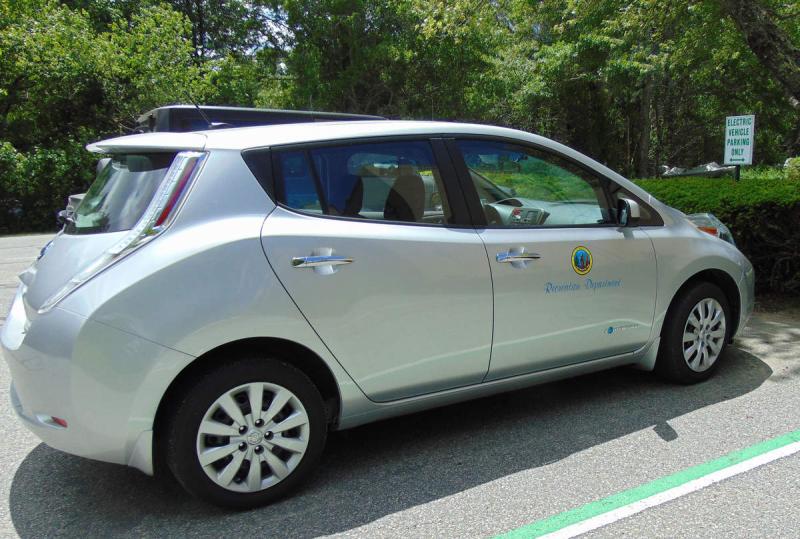Marion goes green: Energy Management Committee working to join state program
Marion’s Energy Management Committee is well on its way to making the town a green community – and opening itself up to the hundreds of thousands of dollars that comes with that designation.
The state's Green Communities program makes participating towns eligible for a large amount of grant money for projects that help make communities more energy efficient.
Possible uses for the grant money could include adding additional electric vehicle charging stations, adding insulation to buildings and replacing boilers.
“All kinds of things related to making towns more efficient,” Energy Management Committee members Jennifer Francis said.
Additionally, Francis said that if voters decide to move ahead with renovating the Town House, there could be grant opportunities there as well.
“As with any of the older town buildings, there are definitely opportunities to make them more efficient,” she said.
Francis explained there are criteria that must be met to become a "green community." Towns must have a plan to decrease municipal energy consumption by 20 percent in five years, replace all municipal vehicles with energy-efficient ones, have a designated area in town where renewable energy installations, such as solar panels, can be installed without special permitting, and adopt building regulations that requires all new construction must use more efficient methods of building homes and commercial buildings.
“We’re pretty confident we’ll be able to get all this stuff done,” Francis said.
The town has already replaced some of its municipal vehicles. Marion acquired four electric vehicles through grants in 2016, and Francis said there aren’t many more vehicles to be replaced. The trucks used for the Department of Public Works, police vehicles and fire trucks are not required to be energy efficient.
“I think the building inspector has a pick-up truck that could be a hybrid, but our town is so small that we’ve done the most obvious ones,” she said.
Additionally, the town has created an a designated area for renewable energy installations.
“We did that by creating a municipal, 50-acre area around the landfill site on Benson Brook Road,” she said. “We have been working toward putting a solar array on top of that.”
As for the plan to reduce energy consumption by 20 percent over five years, Francis said the group has been working on that.
“We can look back at some of the things we’ve already done, such as replacing lights with [energy-efficient] LEDs,” she said. “We’ve got a lot of other plans to reduce the town’s energy use, but we need to make the plan. We don’t need to actually accomplish it.”
Lastly, the town needs to accept a “Stretch Code.” The code is a set of building codes that requires builders to use more efficient methods for any new construction in town.
Francis doesn’t see implementing a Stretch Code to be a big hurdle.
“In the past, the difference between regular building codes and the Stretch Code was quite significant. Now, there’s almost no difference,” she said. “I think passing that will be pretty painless. It won’t require a big change.”
Voters would have to approve the Stretch Code at Town Meeting, and give the go-ahead to the town to become a Green Community. The rest is left to the Energy Management Committee.
Francis said she hopes that the town can accomplish everything by the end of the year, and noted that the benefits are plenty.
“We’d get access to a lot of grant money,” she said. “Literally hundreds of thousands of dollars for all kinds of activities related to energy efficiency.”
Elsewhere in the tri-town, Rochester officials are looking into the possibility of becoming a Green Community, Conservation Agent Laurell Farinon said.
However, at this point, the town is just in an “exploratory phase” to see if the program would be a good fit for the town.
For more information about Green Communities, visit www.mass.gov/orgs/green-communities-division.














